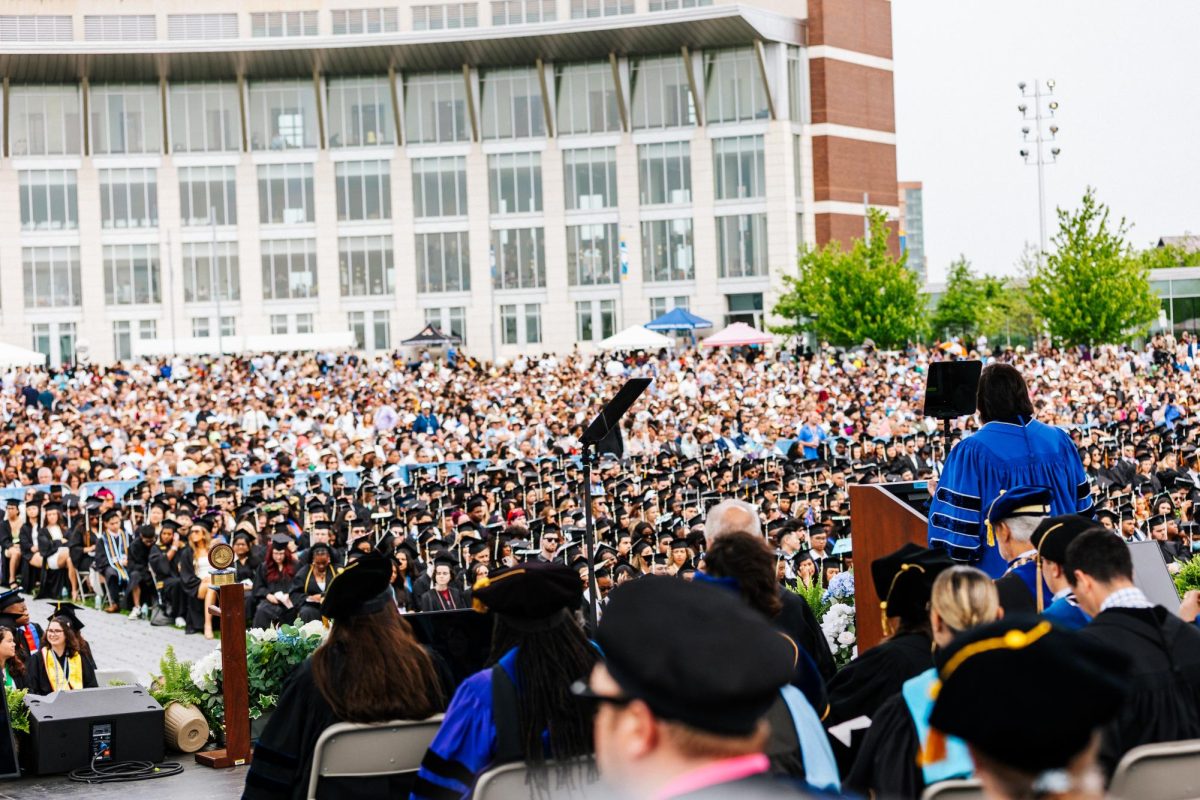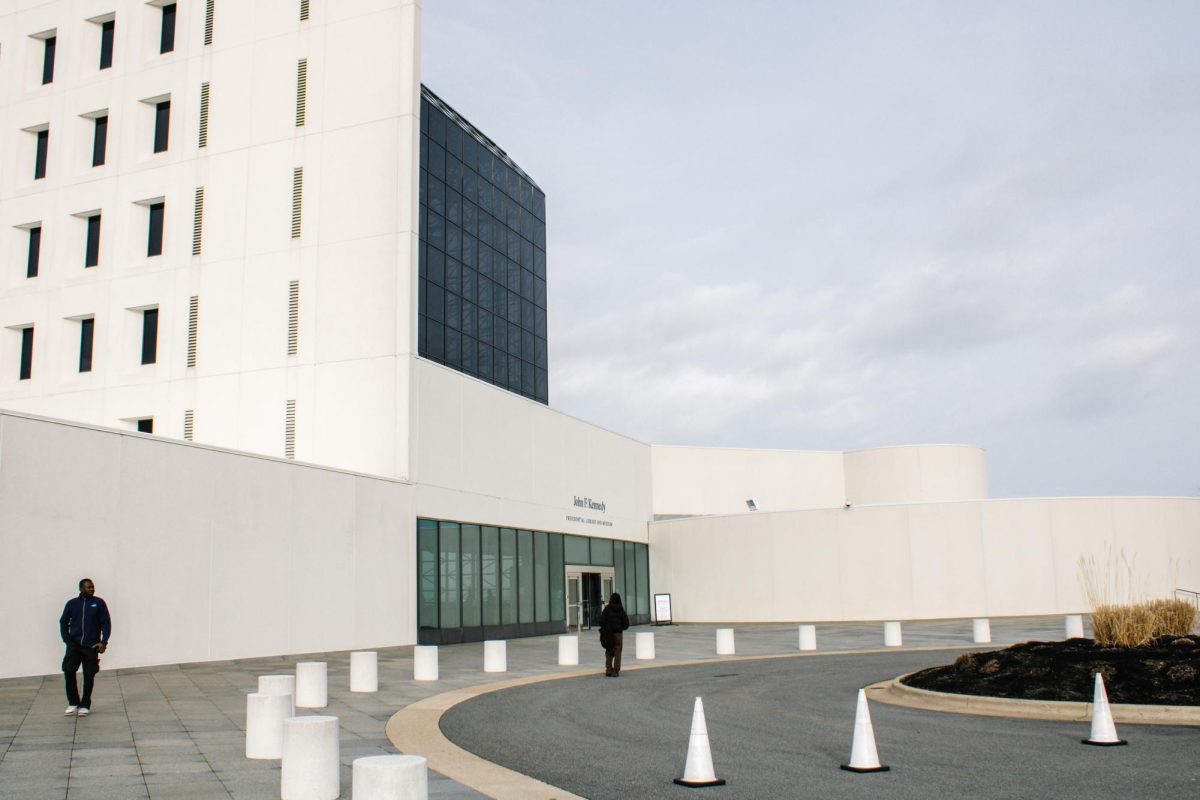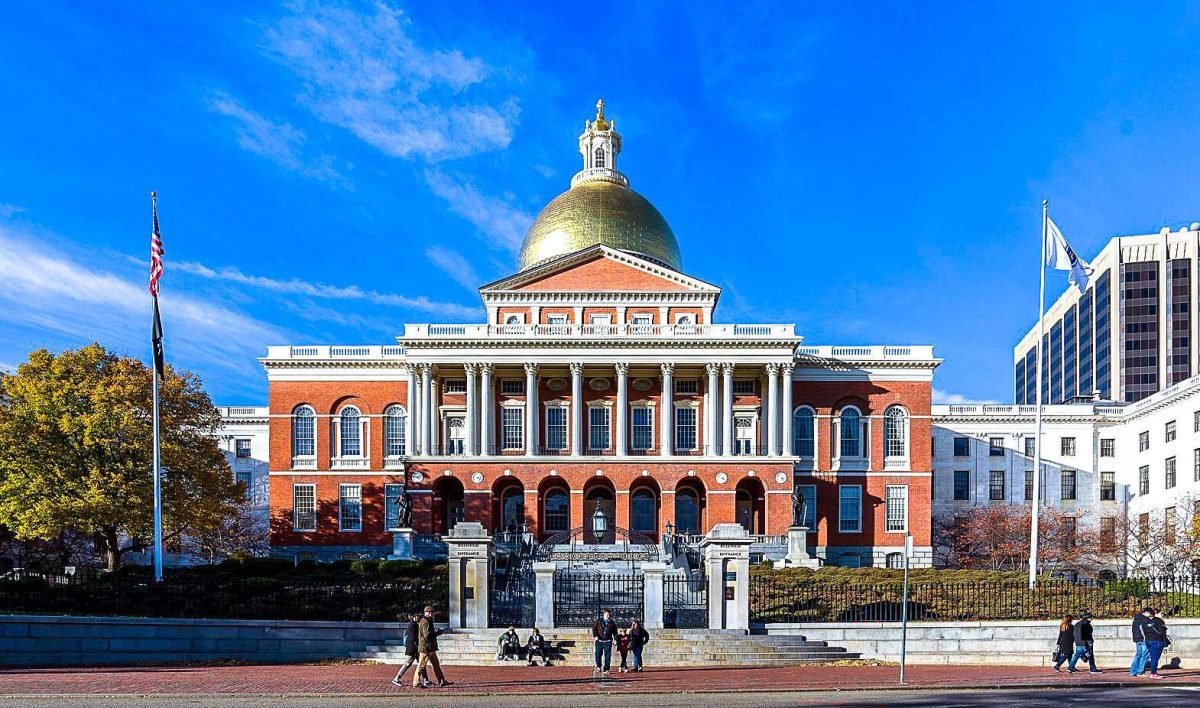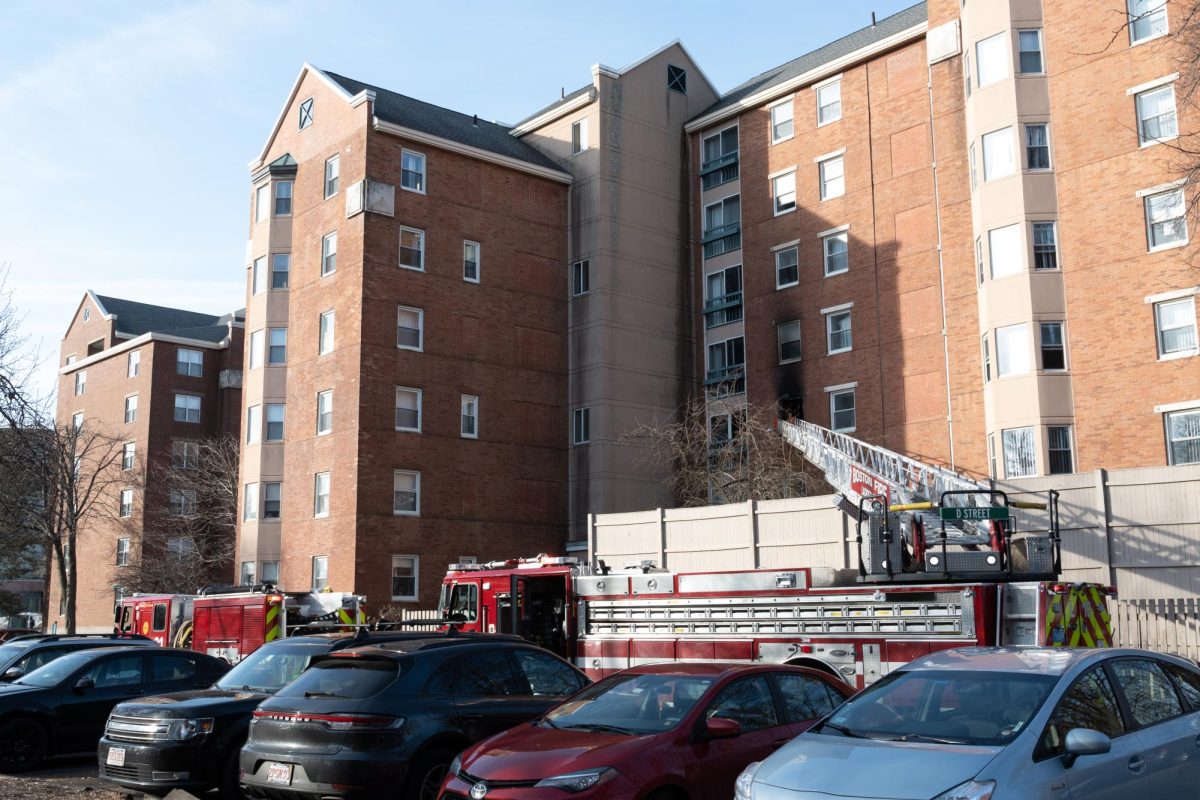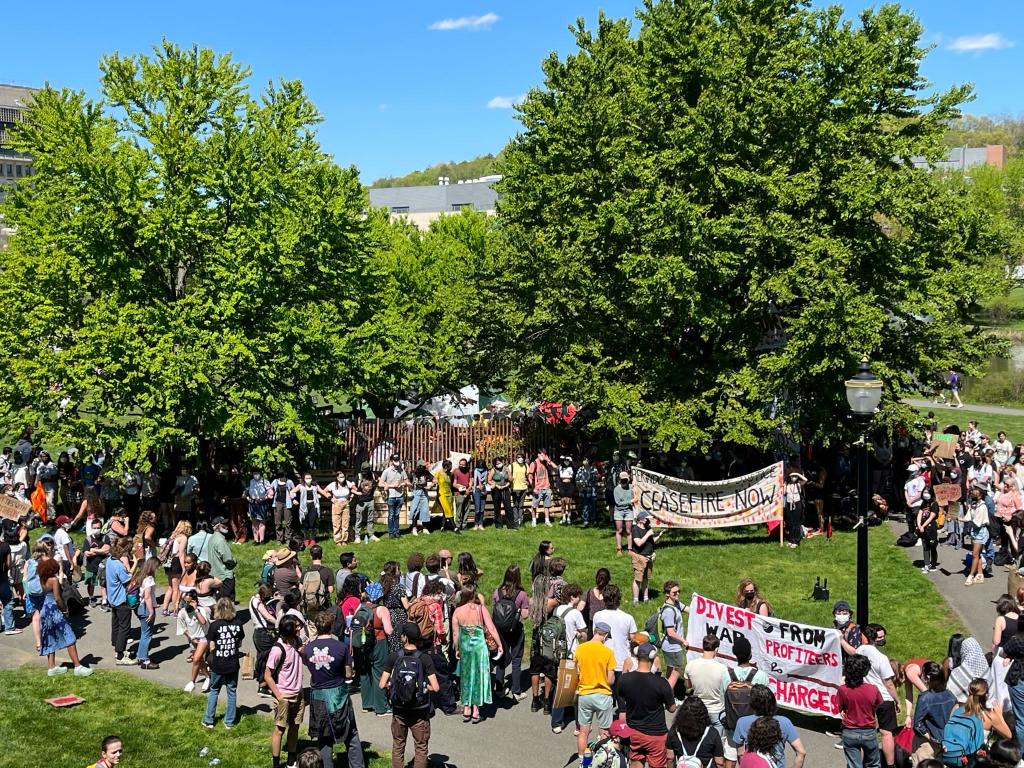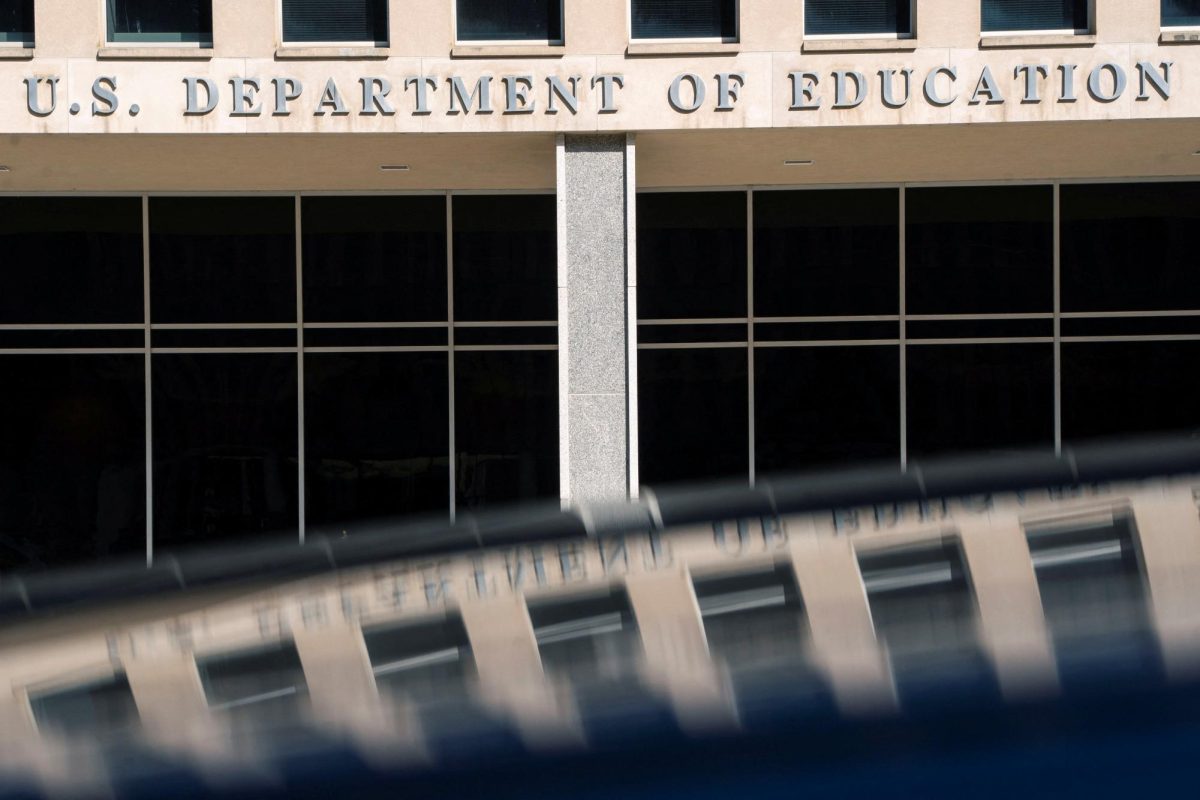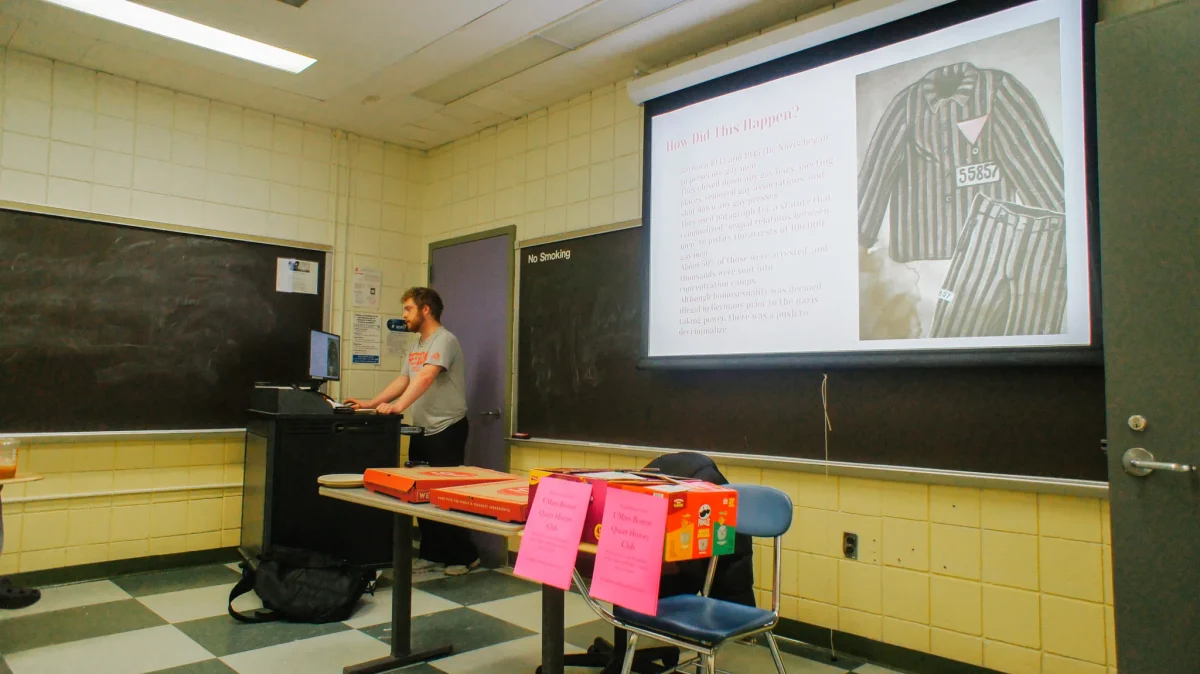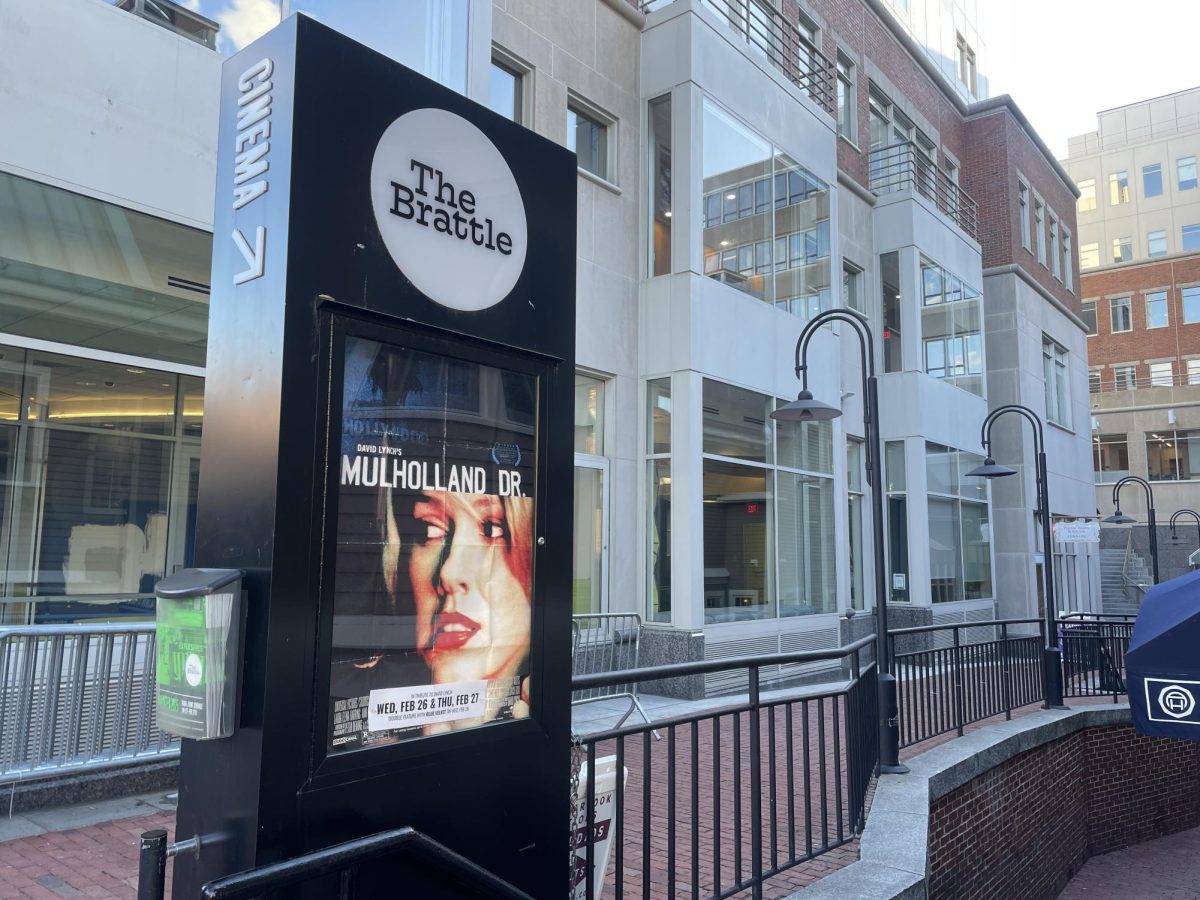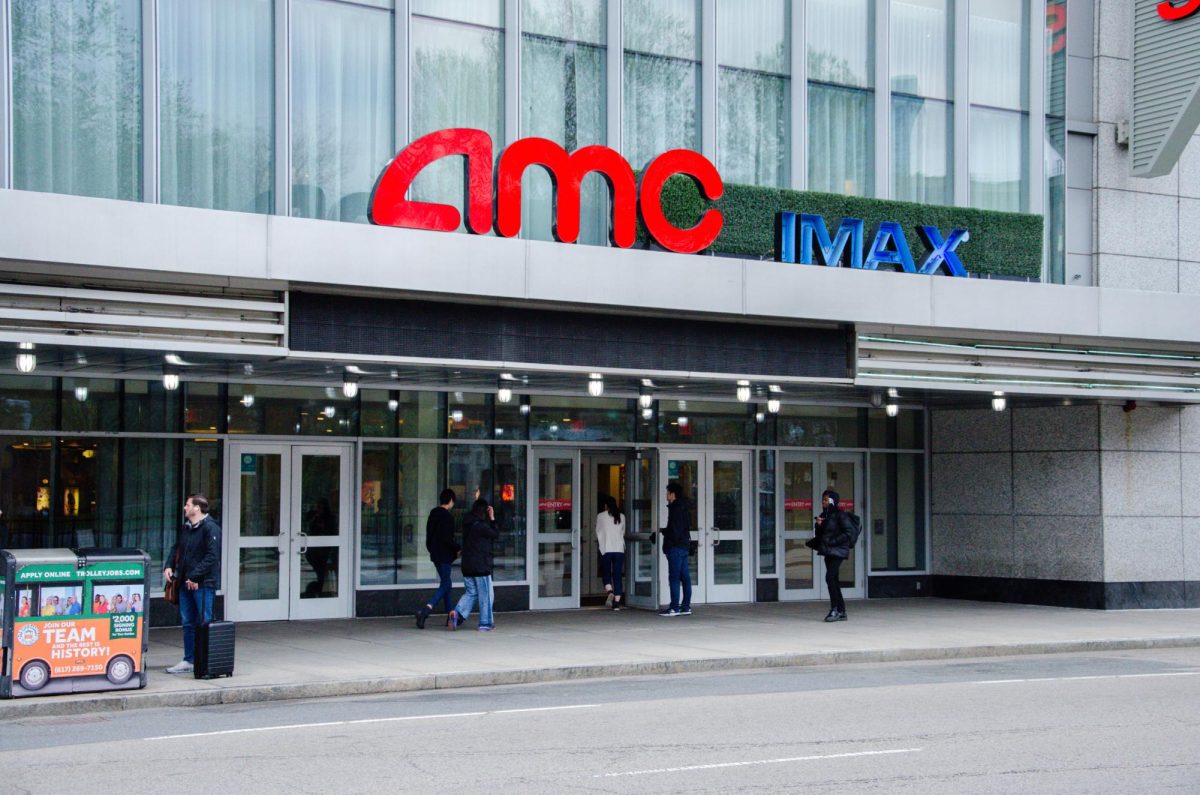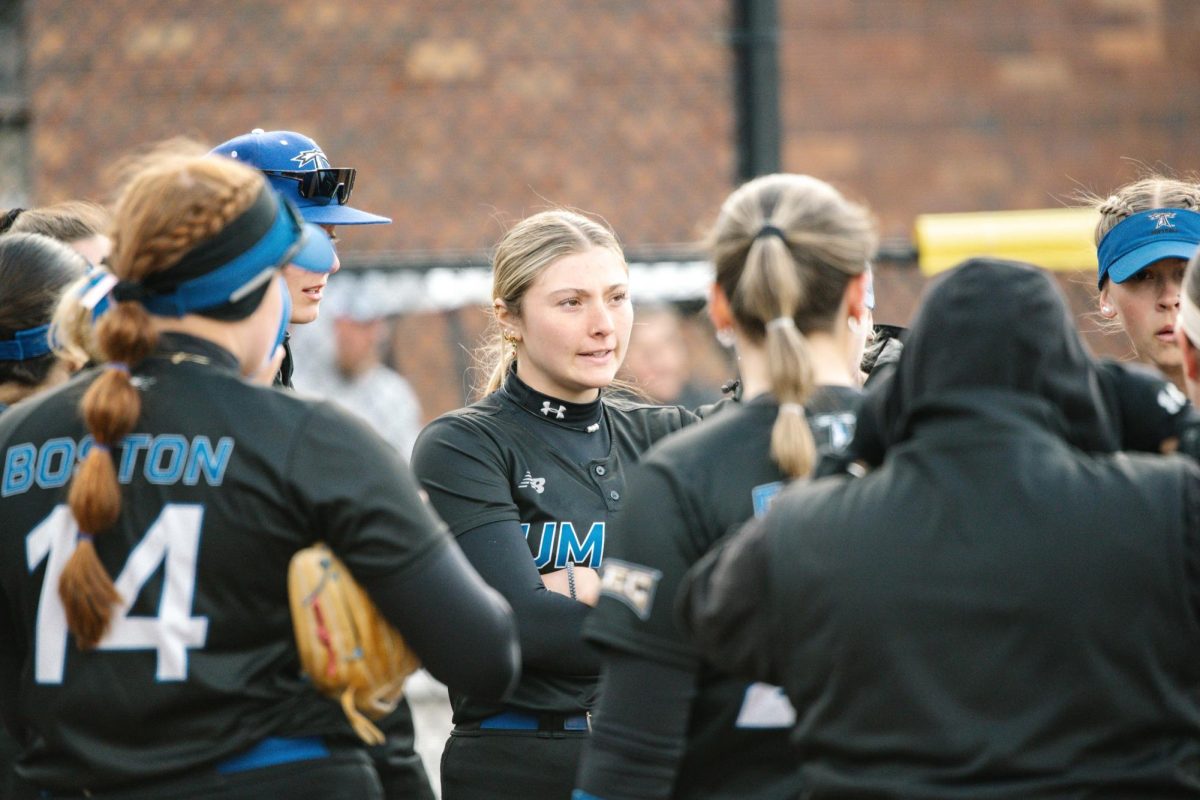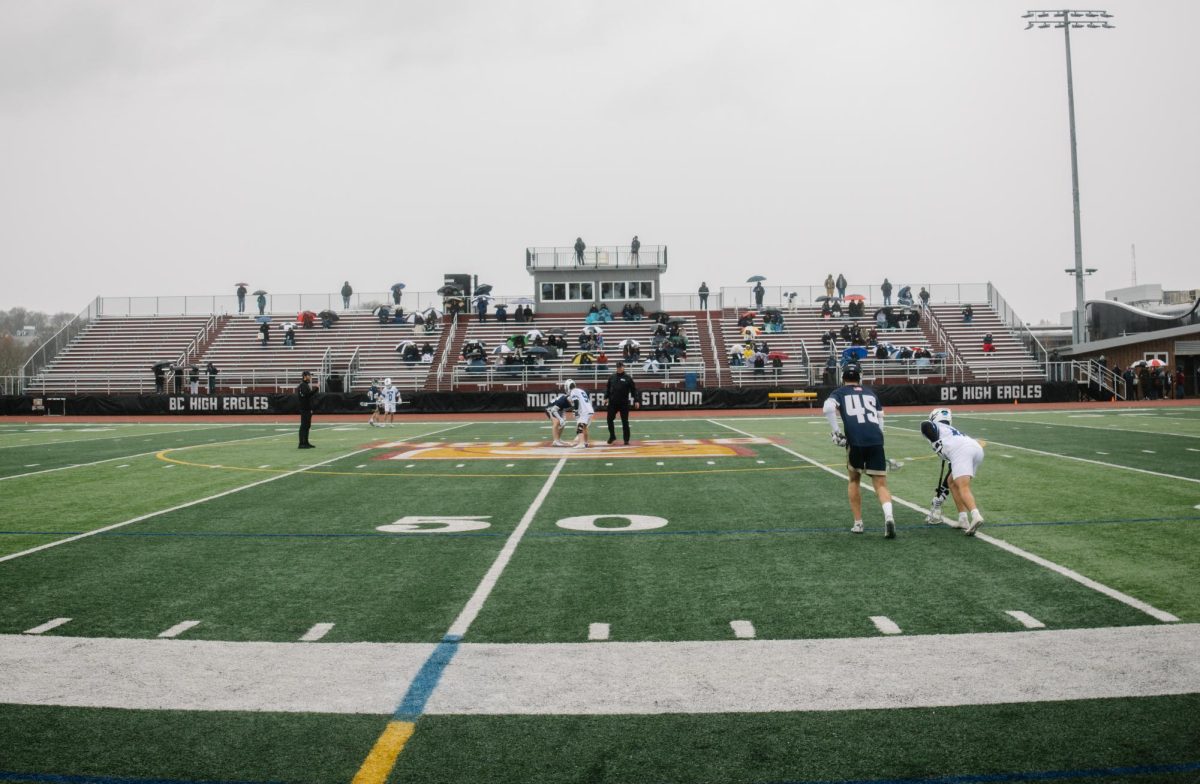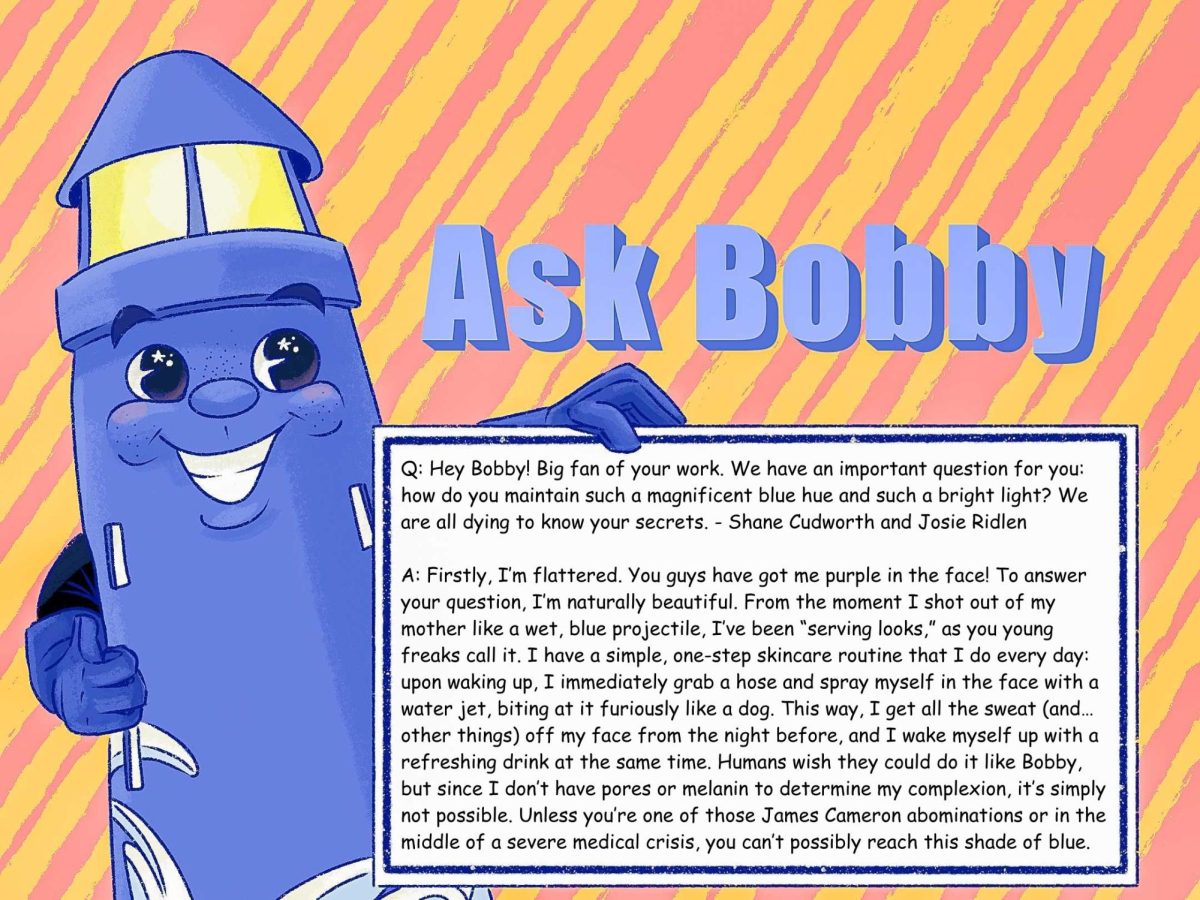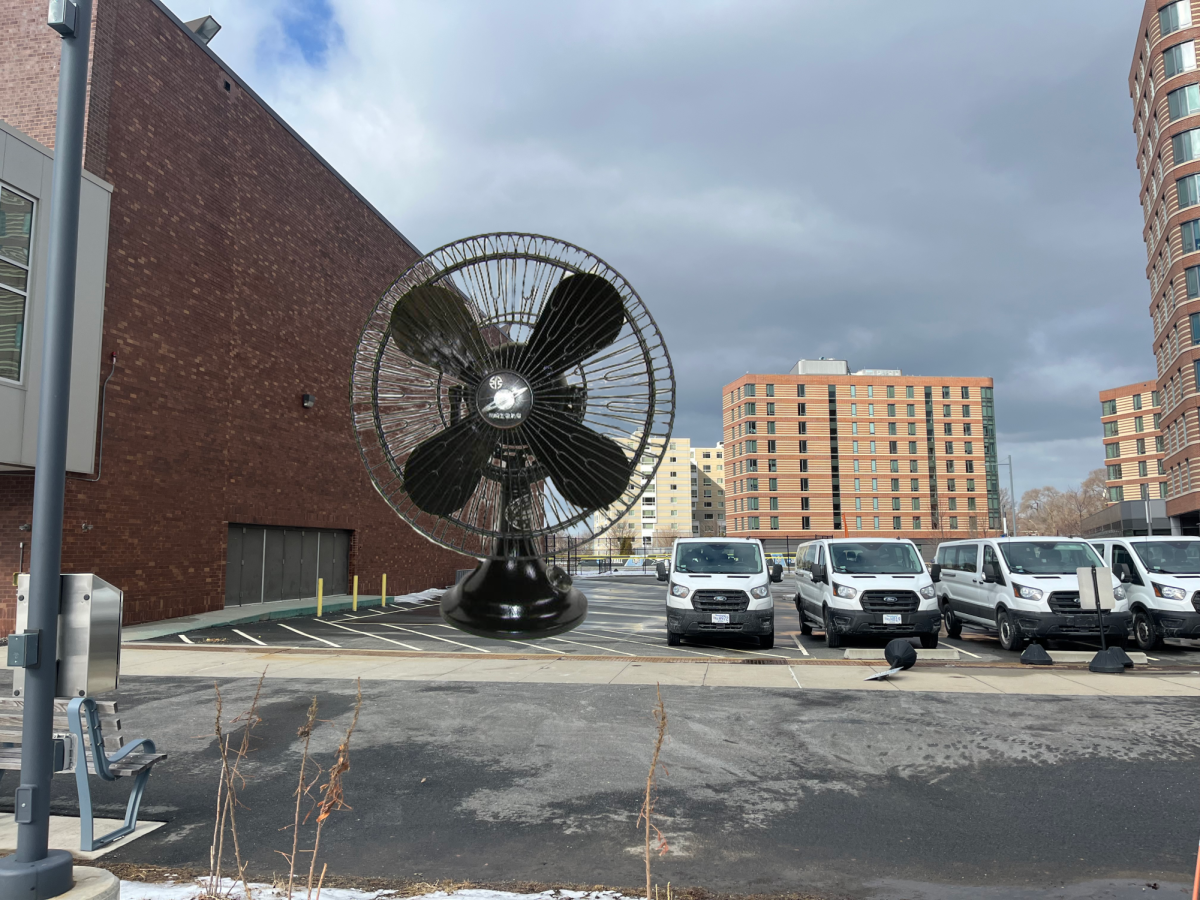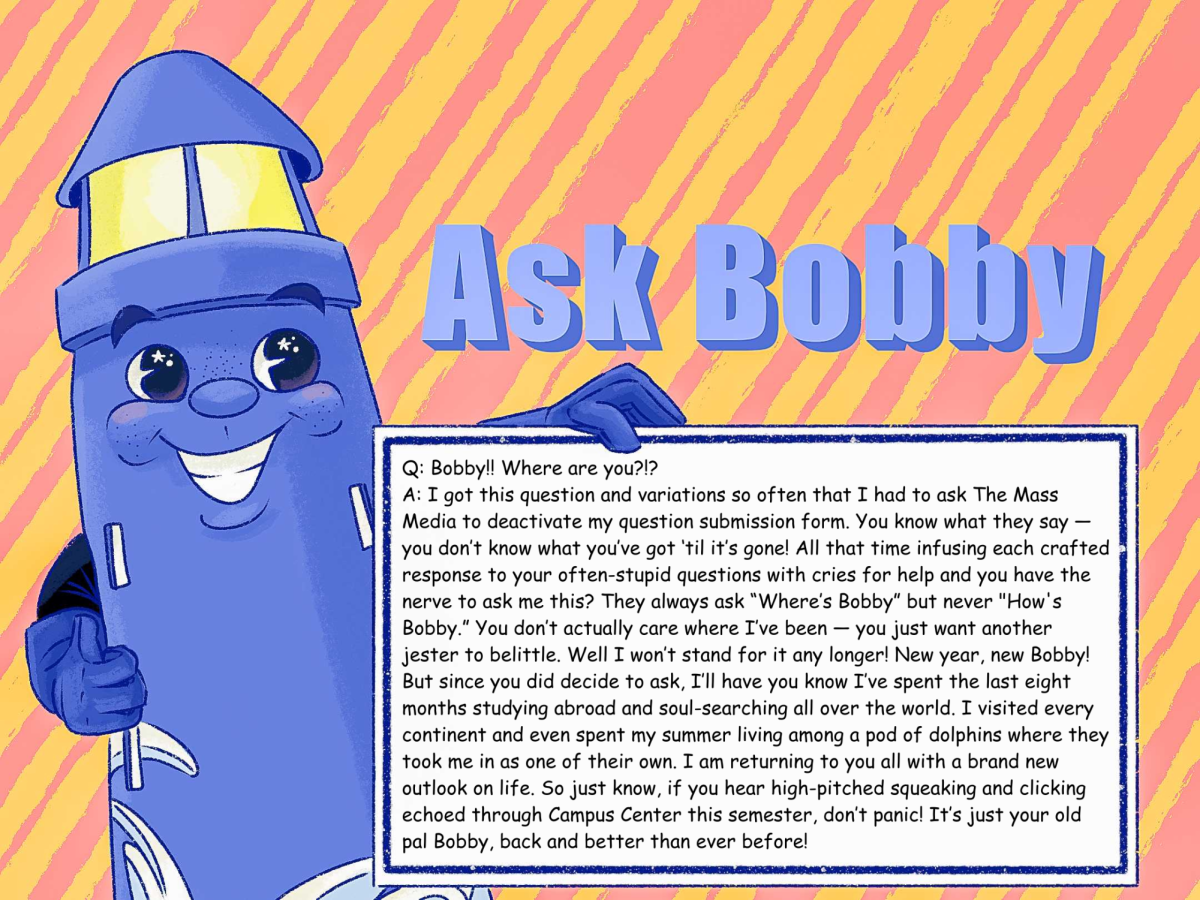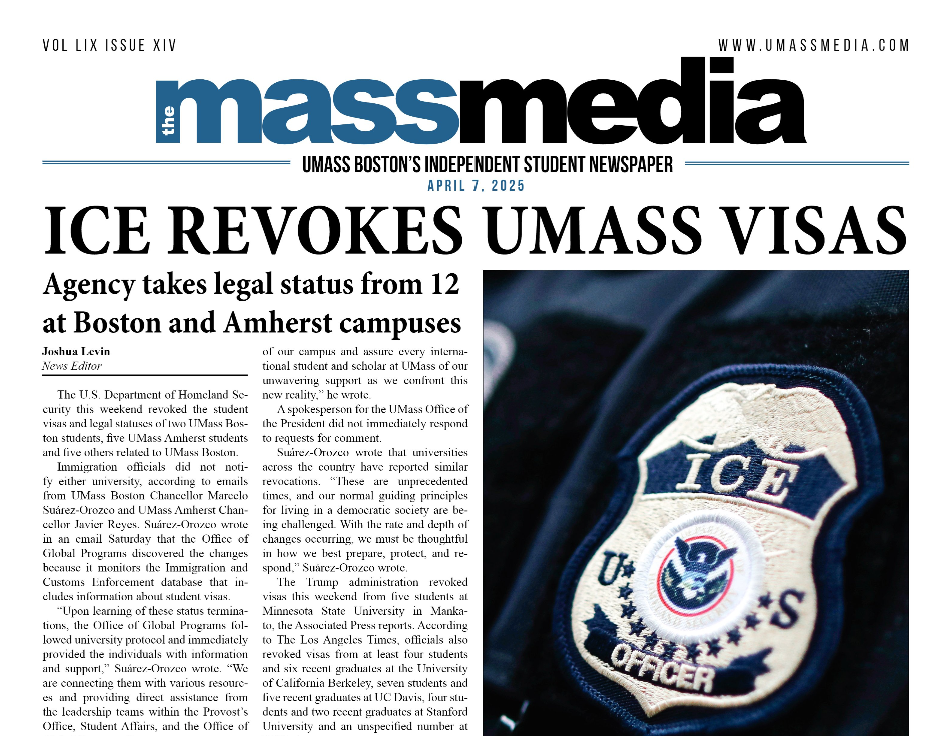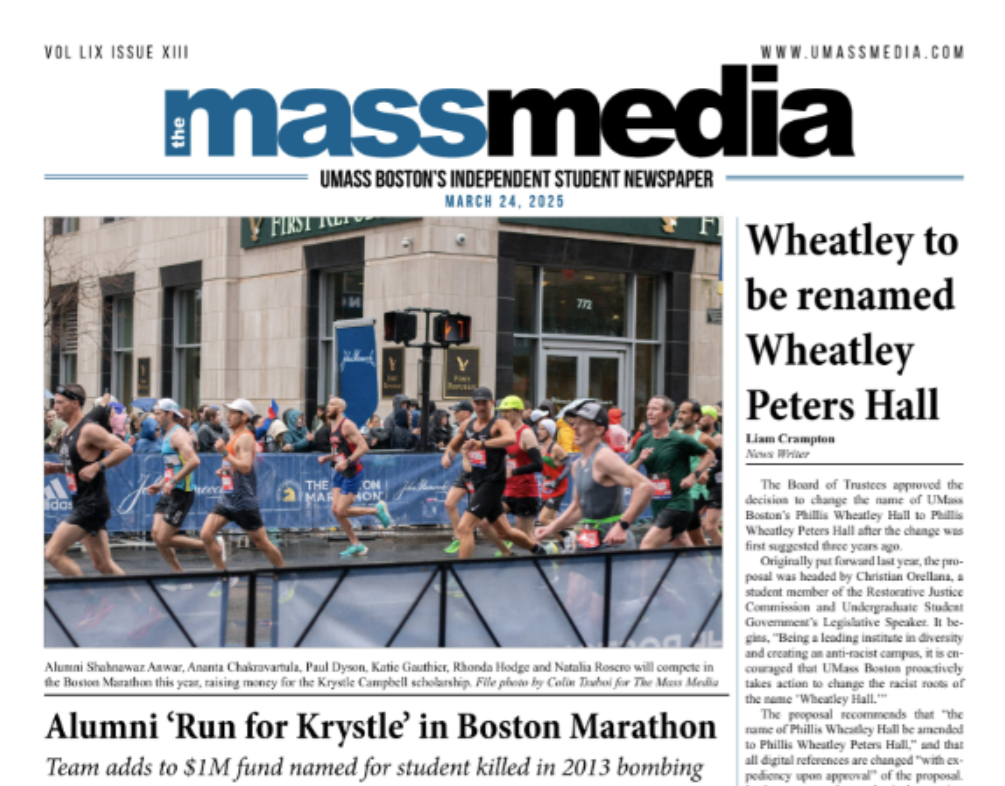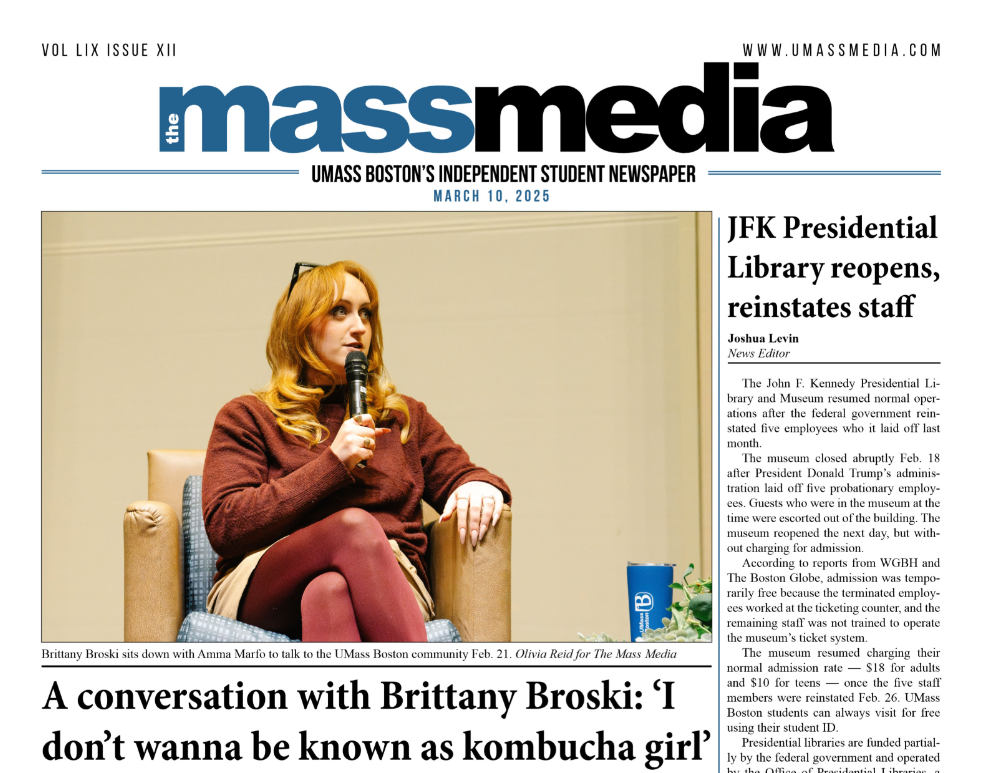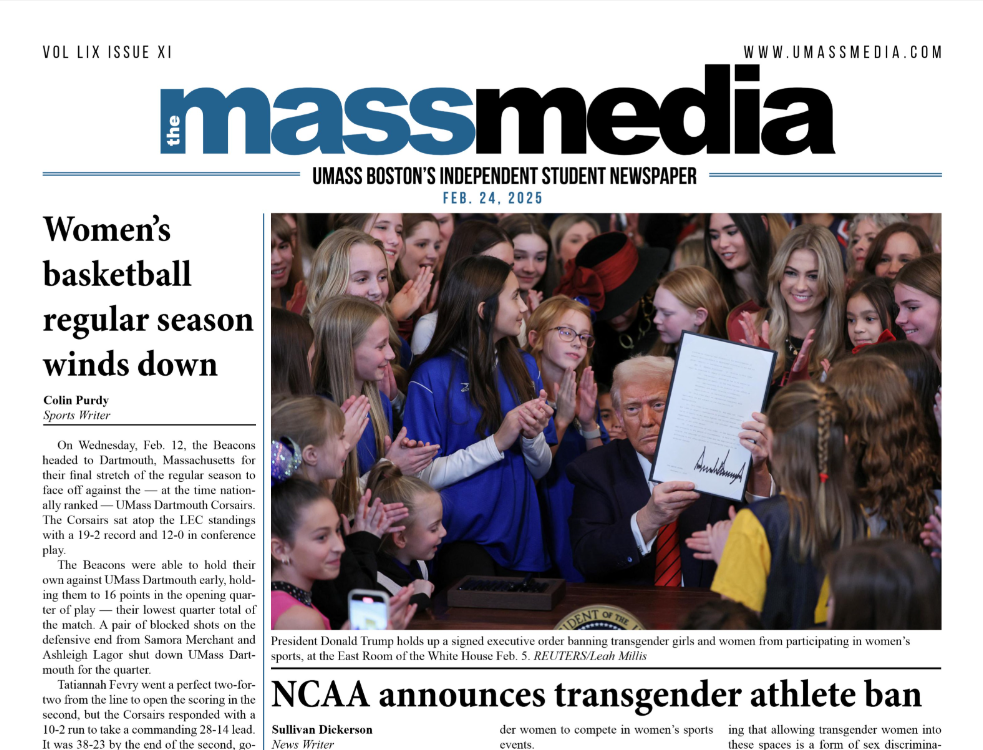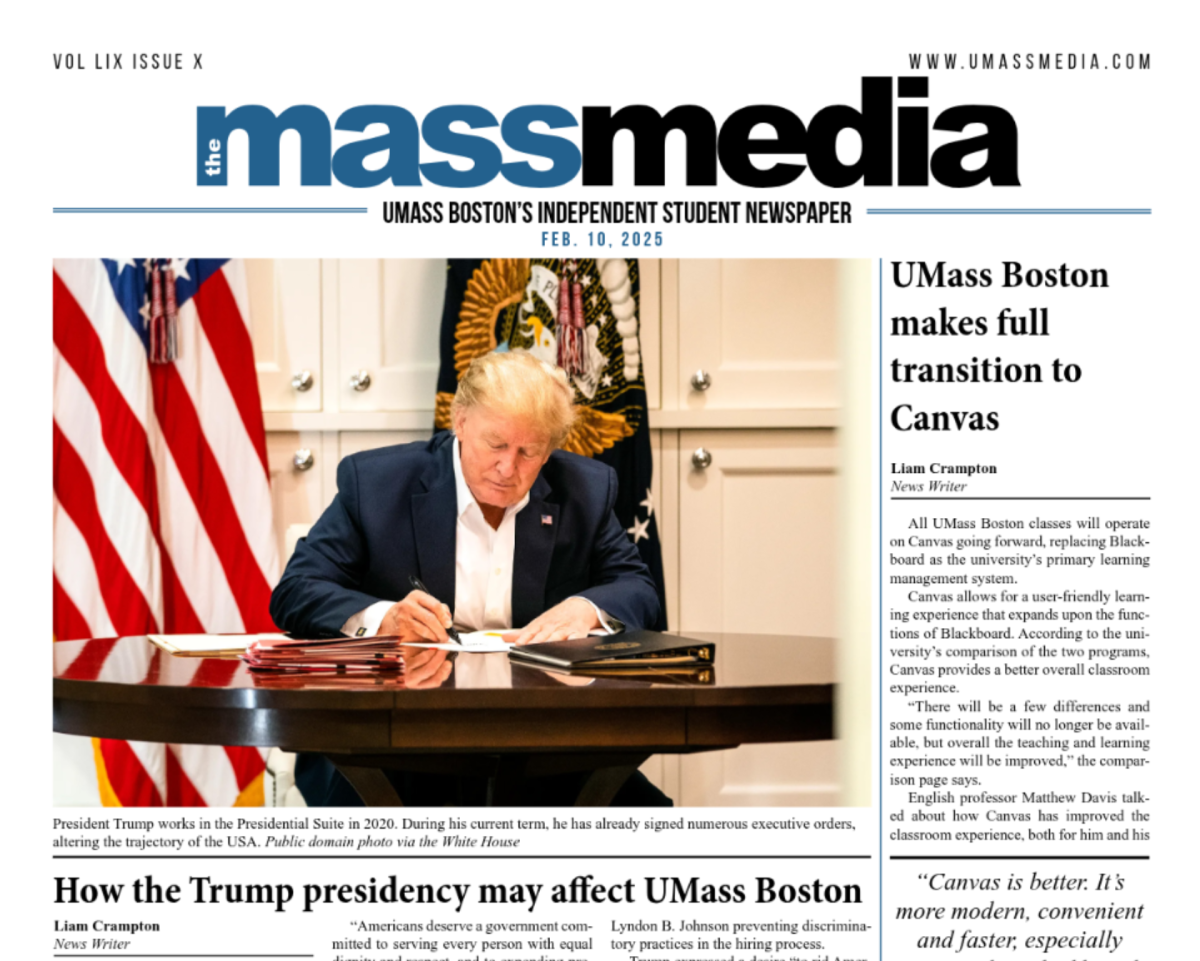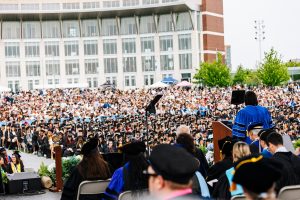Budget Breakdown ’04
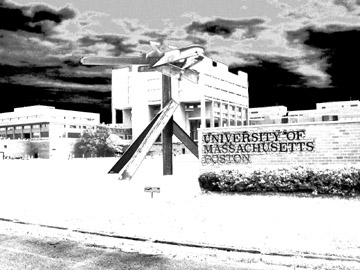
OLYMPUS DIGITAL CAMERA
September 3, 2003
As returning students are painfully discovering, the University of Massachusetts and the Boston campus in particular are in a dire monetary squeeze. Fees have gone up $500 for the new semester and are slated to rise by another $750 for the spring semester. Fees make up the greater part of UMass revenue outside state funding and the modest tuition. In order to make up budget shortfalls in excess of $13 million dollars, large cuts, job loss and drastic reorganization loom for UMB this fall.
The hard job of making cuts fell to the Committee on University Resources and Expenditure, set up by UMB Chancellor Jo Ann Gora in February. On June 30, CURE released its final report, and on August 4, Chancellor Gora released a memo detailing the final cuts.
Co-chaired by David MacKenzie, Vice Chancellor for Administration and Finance and Provost Paul Fonteyn , CURE worked under Chancellor Gora’s admonition to “protect all our degree programs and preserve course availability,” from February to the end of June to come up with cuts that would make up the shortfall and not cause widespread damage to degree programs or academic departments. Several departments have large cuts to make, however, and the push is on to replace full-time faculty with part-timers.
It also recommended ways to juice up revenue production, the biggest of which was to reorganize Corporate, Continuing, and Distance Education classes to cover for courses cut from the regular academic schedule. CCDE classes bring in hard cash, and many will be offered as so-called “hybrid” courses that meld together regular matriculated students and continuing ed. students. UMB will also attempt to generate pocket money by selling $50,000 worth of advertising space on campus.
Adding to a three year trend of dwindling state funding, the state lopped $11 million dollars from UMB this year, and in the wake of the political battle between former University president William Bulger and Governor Mitt Romney, cut an unexpected $2.8 million dollars, bringing the total cuts for 2004 to $13.8 million dollars, or 12.8% of the last year’s operating budget.
The fiscal picture doesn’t look any rosier for the next few years as fund-raiser extraordinaire William Bulger, architect of the University’s growth over the last 7 years, resigned in August. His successor, Jack Wilson, will reign as interim president for a year or two at most and lacks the profound political muscle that Bulger used to coax funding out of the State Legislature. The economic picture for the state of Massachusetts is dismal, and Republican Governor Romney is an avowed cost-cutter who has targeted the university for “waste reduction,”
Many public universities have made drastic cuts to academic programs as state economies suffer collapses right and left. The University of Michigan cut hundreds of courses at the last minute at the last minute and left students scrambling to fill requirements.
Financial aid programs have also taken a hit around the country, and this is a big worry at UMB, where many students are dependant on financial aid for their education. Chancellor Gora has made continued aid support contingent on the new, unpopular fees, saying that with the $750 spring fee hike, “the university will allocate sufficient funds in order to meet 90% of need of students who qualify for financial aid,” but she sounded pessimistic about the budget cuts ” Frankly, I am concerned that some of these targets are optimistic.”
The final cuts came to a hefty $12.5 million. Some of the highlights of the CURE cuts and moneymaking ventures are sure to be controversial and painful:
* Senior citizens will no longer be eligible for fee waivers. They will join the ranks of other aid applicants and be assessed on need. CURE notes, “we expect that eliminating the waiver will reduce the enrollment by seniors,” Added revenue: $180,000
* Handicapped drivers will no longer be able to park for free. Added revenue: $40,000.
* Hybrid CCDE courses for regular degree students. The University is making drastic cuts to part-time faculty and will make more CCDE courses fill in for requirements. Added projected revenue: $2 million.
* One noticeable chop goes to the new Campus Center, which will remain unopened until next year. The shuttle bus was expected to begin drop-offs at the new campus center when it opened but will continue to run to the Quinn Building until Sept. 2004. Savings: $400,000
* Some ideas have yet to have all the details hashed out; the University is apparently going to be shut down for five days during the fall semester to save money on heat and lighting, including the day after Thanksgiving and the week between Christmas and New Years. IT staff are sure to have serious objections, but negotiations proceed apace. Shutting down the campus saves approximately $15,000 per day. Savings: $65,000
* One idea sure to be the subject of controversy is a suggested furlough during the power shutdowns. The unpaid leave has yet to be negotiated with campus workers. Regular employees could take vacation, and according to Gora, “has the potential to save 20-25 jobs,” Projected Savings: $2 million
* More negotiations are underway with the unions about “alternative savings proposals” including cutting hours and possible layoffs. In return, presumably staff cuts could be avoided. No word on how much these voluntary measures could save.
* IT staff around campus should hold off on that attractive summer condo. The campus’ IT Plan will lose a great big chunk of funding including salary raises. CURE felt that salary increases would be “unfair to other UMass Boston employees… denied collective bargaining increases due to lack of funding by the Legislature.” Savings $656,000
* Unhappy news for most employees of UMB: additional compensation and bonuses are to be reduced by 25%. Outside of “legitimate and necessary activities”, according to CURE, “Some (ad comp and bonuses) appear to lack… justification”. Savings: $250,000
* The statistician in Computing Services is out, and his job (providing numbers to researchers) is expected to move into the Office of Research and Sponsored Projects. Savings: $64,000
* Two jobs in the Athletic Department are out. While most costs are funded through fees, two of them are paid for with state funds. It was feared that the UMB sailing program was going to be eliminated, but it has been saved. Savings: $149,000
* Early retirement is also getting a big push this year, with departments urged to retire full-time professors and employees in favor of part-time instructors. While some complain that early retirement has weakened many academic departments by weeding out established professors and slowed research, CURE estimates that after payouts and pensions, the University could save a hefty sum. An incentive passed by the Legislature sets the early retirement deadline as Dec. 31, 2003. Projected Savings: $1.5 million
* Some programs are being eliminated whole. Harbor Explorations, the educational cruises offered by UMB, the Massachusetts Field Center, a booster program for teachers, and the UMB branch of the University of Massachusetts Press are all to be eliminated. The Mass. Field Center has already jumped ship for UMass Dartmouth, Harbor Explorations was “unable to increase its revenues to be self-sufficient,” and CURE says “we do not receive any revenue,” from the $70,000 UMass Press position. Savings: $157,000
* Many of the organizations on Campus that aren’t directly involved in academics are getting painful cuts. Pre-collegiate programs, like Urban Scholars and other programs designed to help the inner city highschooler into college are taking a beating as well. Savings: $100,000
* 10% cuts across the board to centers and institutes, which were deemed, “not likely to do lasting damage to the core mission,” and, “Moreover… they should be obtaining a larger share of their budget from external sources,” Savings: $212,000
* The Environmental Business and Technology Center, a business incubator affiliated with the College of Management, will lose everything but its director, who will have to resurrect the program with venture capital and business grants. Savings: $197,000
* Many on the academic side will be pleased to learn that Administration is taking big hits as well. Vice Chancellors are expected to be able to trim “3.5 positions”. Savings: $128,000
* The Provost’s office loses their Sodexho lunches and one Assistant Provost. Savings: $93,000
* The unglamorous Facilities Report Office and the Customer Service Center are to be merged into one office, and the Environmental Health and Safety Offices and Health Services will join forces. One director’s position and three administrative positions will be axed. Savings: $183,000
* PeopleSoft, the troubled human resources software project that UMB has spent several years on, is getting trimmed a cool $1 million and being put on hold. The software project cost UMB 6.7 million last year, and UMass Dartmouth has dropped the joint project altogether. CURE recommends a temporary hiatus “while…options get sorted out.” Savings: $1 million
* UMB will cut the Central Assessment to the Office of the President by 10%. The Central Assessment pays the President’s office for administrative and IT services, including the aforementioned PeopleSoft project. Savings: $135,000
* Administration and Finance have an unspecified goal of implementing savings. This will mean a certain amount of shakeup throughout the various departments. Savings: $269,000
* Many other departments have “savings targets”. The College of Community and Public Service is expected to trim one staff job and cut it’s budget by $169,000. The College of Science and Mathematics needs to rim $100,000. The College of Management, already taking a blow to the EBTC, will have to come up with another $167,000. The College of Nursing and Health Sciences will slim down by $95,000. The Information technology Center will lose heads and cut costs to the tune of $134,000. Because these cuts are not specific, the savings are projected numbers. Projected Savings: $665,000
A major urban campus still attending to its mission of affordable public education for all? Priceless.




